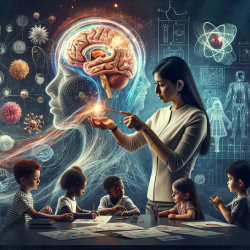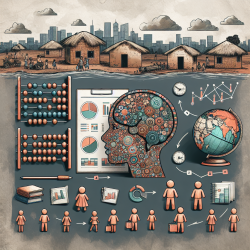As speech-language pathologists (SLPs), our mission is to create the best possible outcomes for the children we serve. Grounding our practice in the latest research ensures that we are making data-driven decisions that can profoundly impact our clients. One particularly insightful study, "Consciousness as a Memory System" by Budson et al. (2022), offers compelling evidence that consciousness is fundamentally tied to memory systems. By understanding and leveraging these findings, we can enhance our therapeutic strategies and outcomes.
Understanding Consciousness as a Memory System
The research by Budson et al. (2022) posits that consciousness originally evolved as a part of the episodic memory system. This system allows us to flexibly and creatively combine and rearrange memories of prior events to plan for the future. Consciousness, therefore, plays a crucial role in problem-solving, abstract thinking, and language development—all areas critical to our work as SLPs.
Practical Applications for SLPs
Integrating the concept of consciousness as a memory system into our practice can lead to several enhancements:
- Enhanced Language Therapy: By understanding that consciousness aids in combining and rearranging memories, we can design activities that promote these skills. For instance, storytelling exercises that require children to recall and sequence events can strengthen both their episodic memory and language skills.
- Improved Problem-Solving Skills: Activities that encourage children to use their past experiences to solve new problems can be beneficial. These can include role-playing scenarios or interactive games that require planning and decision-making.
- Targeted Cognitive Interventions: Knowing that consciousness involves various memory systems (sensory, working, semantic), we can tailor interventions to target specific deficits. For example, using visual aids and repetitive practice can enhance working memory, thereby improving language retention and usage.
Encouraging Further Research
While the findings from Budson et al. (2022) provide a strong foundation, ongoing research is essential. As practitioners, staying abreast of the latest studies and integrating new insights into our practice can continually improve our therapeutic outcomes. We encourage SLPs to engage in research, whether through reading, conducting studies, or participating in professional development opportunities.
Conclusion
By understanding consciousness as a memory system, we can refine our therapeutic approaches to better support the cognitive and linguistic development of children. This research underscores the importance of a holistic approach that considers the interplay between memory and consciousness in language acquisition and use.
To read the original research paper, please follow this link: Consciousness as a Memory System.










